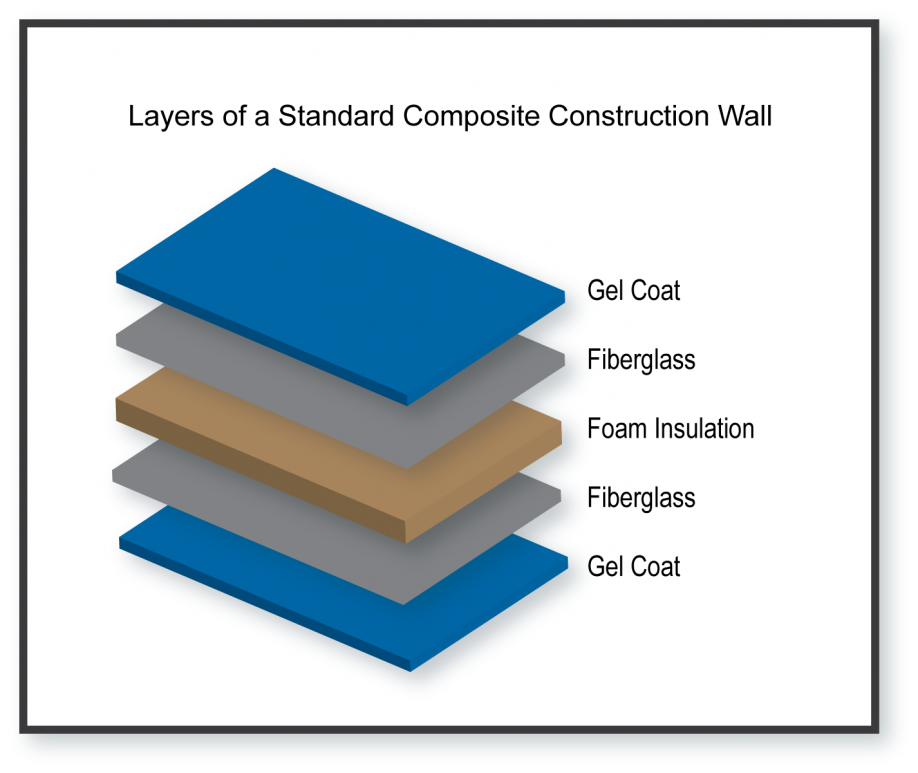Composites: The Future of Lasting Building And Construction Materials
Composites: The Future of Lasting Building And Construction Materials
Blog Article
Checking Out the Uses and Advantages of Recycled Composites in Modern Industries
The combinations of recycled materials with innovative composite innovations provides an encouraging avenue for boosting sustainability, resilience, and cost-efficiency across different industries. As markets seek cutting-edge options to deal with environmental issues and enhance operational effectiveness, the incorporation of recycled compounds emerges as a compelling choice.
Ecological Benefits of Recycled Compounds
The use of recycled compounds in modern-day sectors offers considerable environmental advantages, contributing to the decrease of waste and the conservation of natural deposits. By including recycled composites into manufacturing procedures, markets can decrease their dependence on virgin products, thereby lowering the quantity of waste generated and the energy required for extraction and production. This change in the direction of making use of recycled compounds assists in drawing away materials from garbage dumps, alleviating the burden on waste monitoring systems, and lowering greenhouse gas emissions associated with standard production techniques.
Furthermore, using recycled compounds promotes the conservation of natural deposits such as wood, minerals, and water, which are frequently diminished with the removal and handling of basic materials (composites). By expanding the life-span of materials via recycling, sectors can aid protect ecosystems and biodiversity by reducing the demand for new sources. Overall, the fostering of recycled compounds in contemporary industries plays a vital role in promoting sustainability and mitigating the ecological influence of production processes
Boosted Durability in Item Production
With a concentrate on durability and toughness, including recycled composites right into item production processes enhances sturdiness and sustainability. By making use of recycled compounds, makers can create products that are not only strong yet also resistant to deterioration, making them suitable for long-lasting use in different markets. The combination of various products in recycled composites can usually result in enhanced strength and longevity contrasted to traditional materials, giving an affordable remedy for creating lasting goods.
Among the crucial advantages of utilizing recycled compounds in item manufacturing is the capacity to customize the material homes to meet specific durability requirements. By changing the composition and production techniques, manufacturers can tailor the recycled composites to hold up against extreme ecological problems, hefty lots, or constant use without compromising on performance. This adaptability in layout and manufacturing allows for the development of very resilient items that preserve their integrity over time, minimizing the demand for constant substitutes and inevitably contributing to a much more lasting production procedure.
Cost-Effectiveness and Economic Advantages
Incorporating recycled compounds into item production not only improves longevity and sustainability but also provides considerable cost-effectiveness and financial benefits. Making use of recycled composites can bring about minimized material expenses as recycled materials are commonly less expensive than virgin materials. In addition, reusing composite products can reduce waste disposal expenditures and decrease the requirement for garbage dump space, adding to overall cost savings for sectors.

Development and Style Flexibility With Recycled Compounds
Making use of recycled composites in contemporary markets uses unrivaled chances for technology and style adaptability. By including recycled materials right into composite production processes, companies can push the boundaries of standard layout constraints and discover new possibilities. The flexibility of recycled composites enables for the development of intricate forms and frameworks that could not be attainable with conventional products.
One of the crucial benefits of recycled compounds is their capacity to be molded into various kinds, giving designers the flexibility to trying out unique sizes and shapes. composites. This adaptability opens up a world of imaginative chances, making it possible for the development of light-weight yet long lasting items that satisfy the certain requirements of different markets
Additionally, the use of recycled compounds promotes lasting practices and sustains the circular economy by lowering waste and minimizing the ecological influence of producing processes. This emphasis on green style remedies straightens with the growing pattern in the direction of sustainability in modern sectors, making recycled composites an important resource for forward-thinking and ingenious business.
Applications Across Numerous Industries
Recycled composites Going Here discover impactful and diverse applications throughout a wide array of industries due to their distinct residential or commercial properties and sustainability advantages. The aerospace industry benefits from recycled composites in the production of aircraft components, where the materials' strength-to-weight proportion is essential for ensuring safety and performance. The adaptability and sustainability of recycled composites make them beneficial across different sectors, driving innovation and environmental stewardship.
Conclusion
Finally, the usage of recycled composites in modern-day industries offers substantial ecological advantages, improved toughness in item manufacturing, cost-effectiveness, and financial advantages. The use of recycled composites allows for technology and layout flexibility throughout numerous markets. In general, the fostering of recycled compounds offers a lasting and sensible service for satisfying the requirements of the sector while likewise minimizing environmental influence.

One of the vital advantages of making use of recycled compounds in item production is the capability to tailor the material residential properties to satisfy certain sturdiness requirements. Using recycled compounds can lead to minimized product expenses as recycled materials are usually less expensive than virgin learn this here now products. The aerospace sector benefits from recycled compounds in the production of aircraft parts, where the products' strength-to-weight proportion is vital for making certain security and performance.
Report this page